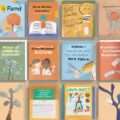Understanding Fast Learners: Embracing Your Unique Learning Style
We all have different ways of absorbing and processing information. Some of us may take a bit more time to grasp new concepts, while others seem to pick things up almost effortlessly. If you’ve ever been amazed by someone’s ability to quickly understand and apply new information, you may have encountered a fast learner. In this article, we’ll explore the characteristics of fast learners, not to compare or judge, but to celebrate the diversity of human cognition and perhaps discover new ways to enhance our own learning journeys.
The Compassionate Approach to Fast Learning
Before we dive into the characteristics of fast learners, it’s important to remember that every learning style is valuable. Fast learning isn’t superior to other forms of learning; it’s simply one of many ways our magnificent brains process information. The goal isn’t to become a fast learner if that’s not your natural inclination, but rather to understand and appreciate different learning styles, including your own.
Fast learners often exhibit certain traits that contribute to their quick uptake of new information. Let’s explore these with a sense of curiosity and openness, remembering that these characteristics can be nurtured in anyone to some degree.
Key Characteristics of Fast Learners
- Curiosity and Enthusiasm: Fast learners tend to approach new topics with genuine interest and excitement. They ask questions and seek to understand not just the ‘what’ but also the ‘why’ and ‘how’ behind concepts.
- Active Listening: They pay close attention when receiving new information, often engaging with the material through questions or comments.
- Pattern Recognition: Fast learners excel at identifying patterns and making connections between new information and existing knowledge.
- Effective Information Processing: They have a knack for quickly organizing and categorizing new information in their minds.
- Strong Memory: Fast learners often have well-developed memory skills, allowing them to recall and apply information readily.
Nurturing Fast Learning Qualities in Yourself
While some people may naturally possess more of these characteristics, it’s important to remember that learning is a skill that can be developed. Here are some compassionate ways to nurture fast learning qualities in yourself:
- Cultivate Curiosity: Approach new topics with an open mind and a desire to learn. Ask questions and seek to understand the broader context of what you’re learning.
- Practice Active Listening: When receiving new information, give it your full attention. Engage with the material by asking questions or summarizing key points in your own words.
- Look for Patterns: Try to identify connections between new information and things you already know. This can help you integrate new knowledge more effectively.
- Organize Information: Develop strategies for categorizing and structuring new information in ways that make sense to you. This might involve creating mind maps, summaries, or other visual aids.
- Exercise Your Memory: Engage in activities that challenge your memory, such as learning a new language or playing memory games.
Embracing Your Unique Learning Journey
Remember, the goal isn’t to become a fast learner overnight or to change who you are fundamentally. Instead, focus on understanding and appreciating your unique learning style while gently exploring ways to enhance your learning experience. Each person’s journey of growth and discovery is unique and valuable.
Fast learners may grasp concepts quickly, but that doesn’t diminish the value of deep, thoughtful learning that may take more time. In fact, some of the most profound insights and innovations come from those who take the time to deeply ponder and explore ideas.
The Role of Mindset in Learning
One of the most important factors in learning, regardless of speed, is mindset. Cultivating a growth mindset – the belief that your abilities can be developed through dedication and hard work – can significantly impact your learning experience. Here are some ways to nurture a positive learning mindset:
- Embrace challenges as opportunities for growth
- View mistakes as valuable learning experiences
- Persist in the face of setbacks
- Find inspiration in the success of others
- Believe in your ability to learn and grow
By adopting these attitudes, you can enhance your learning experience and potentially increase your learning speed over time.
FAQ: Understanding Fast Learners
Q1: Are fast learners born or made?
A1: While some people may have a natural predisposition towards fast learning, many of the characteristics of fast learners can be developed and improved over time. It’s a combination of innate abilities and learned skills.
Q2: Does being a fast learner guarantee success?
A2: Not necessarily. While quick learning can be advantageous in many situations, success depends on many factors including perseverance, emotional intelligence, and practical application of knowledge.
Q3: Can slow learners become fast learners?
A3: Learning speed can certainly be improved, but it’s important to remember that everyone has their own unique learning style. The goal should be to become the best learner you can be, rather than trying to fit into a specific category.
Q4: Are there any disadvantages to being a fast learner?
A4: Fast learners might sometimes struggle with impatience or boredom when learning at a slower pace. They may also sometimes miss important details by moving too quickly through material.
Q5: How can I support a fast learner?
A5: Provide challenging material, encourage their curiosity, and offer opportunities for them to apply their knowledge. Also, help them develop patience and appreciation for different learning styles.
In conclusion, understanding the characteristics of fast learners can provide valuable insights into different learning styles. However, it’s crucial to approach this knowledge with compassion and self-acceptance. Whether you’re a fast learner or not, your unique way of processing and understanding the world is valuable and worthy of celebration. By nurturing a positive mindset and embracing lifelong learning, we can all continue to grow and develop, each in our own beautiful way.









